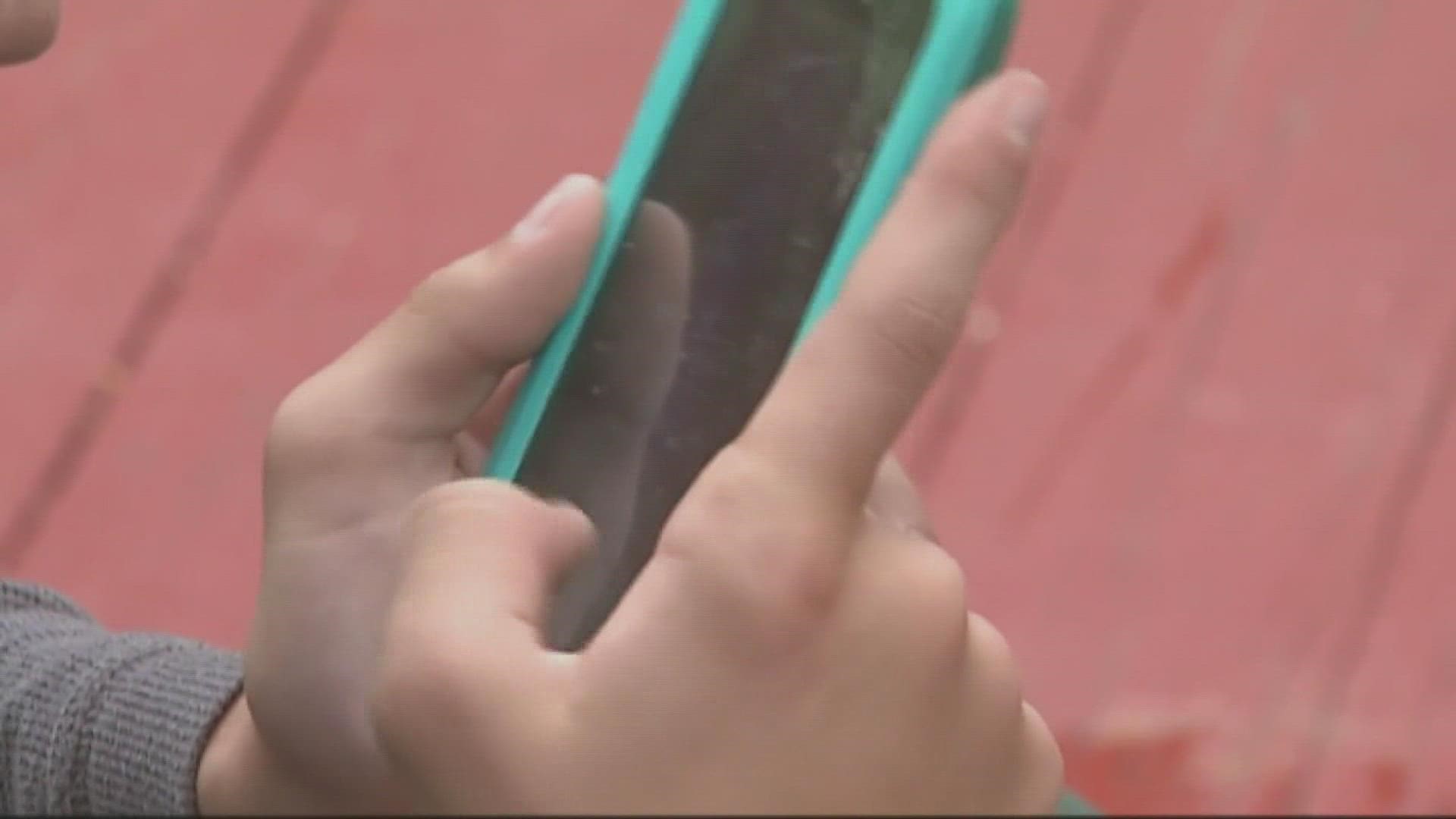KNOXVILLE, Tenn. — Newly released data shows Tennessee ranks 36th in overall child well-being, according to the 2022 KIDS COUNT Data Book. The annual report this year focuses on youth mental health.
The Tennessee Commission on Children and Youth said "children in America are in the midst of a mental health crisis, struggling with anxiety and depression at unprecedented levels."
The report indicated that is true in Tennessee, too. Around 10% of children are diagnosed with anxiety or depression, according to the report.
"What comes to my mind is the abuse that children are facing in our community, the poverty that some of our families are facing, as well as just lack of access to resources," said Vonda McGill, the clinical director of Childhelp Child Advocacy Center in Knoxville.
The center is designed for children who have been abused or neglected. It does forensic interviews, victim advocacy and therapy for kids. McGill is also a therapist at the center, she hears the major mental issues facing this generation.
"We're seeing a lot of children struggling with anxiety and depression," she said.
McGill walked through the Adverse Childhood Experiences that directly correlate with mental health issues linked to trauma, future violence victimization and perpetration.
The most common ACEs are:
- Physical abuse
- Sexual abuse
- Emotional abuse
- Physical neglect
- Emotional neglect
- Mental illness
- Divorce
- Substance abuse
- Violence against your mother or father
- Mental illness
- Having a relative who has been sent to jail or prison
"It can be a wide variety of things," McGill said. "But the more Adverse Childhood Experiences that a child has, the more they're going to struggle with anxiety and depression."
The Kids Count Data Book tracked several other areas as well that can affect a child's mental health. Some of the factors that go into the well-being report are economic well-being, education, health, family and community.
She also said that she believes one of the areas also affecting childhood well-being, that is not listed in the report, is how social media use can impact mental health.
"Many of our kids nowadays are given phones at a very young age. And there's a lack of parental controls, parents often don't know what their children are doing online," McGill said.
There are apps that parents can download onto their children's phones to track location, money, text messages, web searches, and phone calls. Some prominent apps are Life 360, which prioritizes family safety in the car with crash detection, speed limit notification, and location services. Parents can use this app to track their teen's locations.
Another is Net Nanny, which shows parents what their kids are searching in their cell phone internet browsers, most-used applications, and real-time alerts on search terms like 'porn,' 'suicide,' 'weapons,' and 'drug-related' content.
Also, the Bark app monitors texts, email, YouTube, and more than 30 other apps and social media platforms for signs of issues like cyberbullying, sexual content, online predators, depression, suicidal ideation, threats of violence, and more.
McGill said it's important for parents to set up controls like this to monitor behavior.
"We're seeing a high rate of children who are victims to children, children that have been exposed to pornography, children that are victims themselves and are victimizing other children," McGill said.
She said cyberbullying is also still very prevalent on social media.
"They're dealing with depression and anxiety based on what's happening at school, what's happening in the online community, how they're getting bullied," McGill said. "It's a very serious problem."
The issue of technology has gotten so prevalent that McGill said some teens are outsmarting their parents. A common grounding technique for parents is to take away cell phones and technology, but McGill said more teens are using 'burner phones' to access social media.
"I have clients that come in, and they talk about having a burner phone, which is basically a phone that they got from a friend that their parent doesn't know that they have," McGill said.
They are usually cheap, prepaid mobile phones that that easily discardable and often untraceable. People can pre-pay for minutes and data rates. When the phone runs out they can either add more data and minutes or get a new phone.
"Kids tell me they have these secondary phones," Mcgill said. "It's definitely a problem. These kids are accessing things. And parents are just not even aware of it."
The Childhelp Child Advocacy Center is eager to help any family or child that may be experiencing anxiety or depression. They urge people to call 1-800-4-A-CHILD to get connected to resources.

